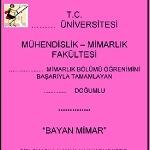DISCRIMINATION
Draft Law: TL 500,000 Fine for Discrimination

The government prepared an anti-discrimination draft law. The draft law has apparently been sent to various institutions to receive their opinions.
The draft bill offers "the prohibition of discrimination based on gender, race, colour, language, religion, belief, ethnicity, sexual identity, philosophical and political opinion, social status, marital status, health condition, disability, ages and similar essential basics".
Prohibition of discrimination: Private and legal entities offering services related to training and education, the judiciary, the police, health, transportation, communication, social services, social security, social welfare, sports, accommodation, culture and tourism shall not discriminate anybody using these services, applying for them or asking for information about them.
Special regulations for the disabled: People and institutions in charge of designing and providing these services shall be obliged to take the needs of different groups of disabled people into consideration and to make reasonable arrangements.
Prohibition of discrimination for elections: Nobody shall exhibit a discriminatory approach in terms of participation in public life by membership of an association, foundation, trade union and professional organization and being elected to such organs. This includes the right to vote and to be elected.
Positive discriminations and exceptions: Education and training institutes that provide service related to eliminate inequalities, to compulsory qualifications for a profession and to religious service regarding a particular religion shall not be considered discriminatory if they only accept people belonging to relevant religious or professional group.
Anti-discrimination committee: Upon fulfilling further regulations of the law regarding discrimination, a "Anti-Discrimination and Equality Commission" will be established as a public legal entity endowed with administrative and financial autonomy. The commission will comprise a staff of 90 employees.
Right to individual application: Everybody who claims to have been exposed to discrimination can apply to the committee. Applications can be filed as a written petition, by e-mail or reported orally to be taken to the record. A phone line free of charge will be allocated to the commission for applications.
An application to the commission will suspend the time limit for opening a law case.
Penalties of up to TL 500,000: The committee may implement penalties between TL 1,000 (€ 475) and TL 500,000 (€ 238,100) according to the impact of the discrimination and the severity of its results. The committee is furthermore entitled to file criminal complaints.
Judicial auditing: The committee will supervise the fulfilment of judicial decisions related to discrimination, compensation fines excluded. The same range of penalties (€ 1,000 - 500,000) may be imposed in case the judicial decisions lack implementation. This monetary fine shall not eliminate the obligation to implement the respective decision. In case the judicial decision should not be implemented, an administrative fine doubling the amount of the previous penalty shall be applied.
Recourse from public officials: Recourse for the administrative fines to be paid by public institutions and organizations shall be mandatorily claimed from the public official(s) who applied discrimination. (TK/VK)
KURDISH QUESTION
PKK Ceasefire to be Terminated on 31 October?

KCK CASE
Court Dismissed Request for Defence in Kurdish

7th Istanbul Gathering for Freedom of Thought

CONSTITUTIONAL AMENDMENTS
58 Percent Said "Yes" to Constitutional Reform Package

Rights Organizations 3 Years ahead of Foreign Minister








